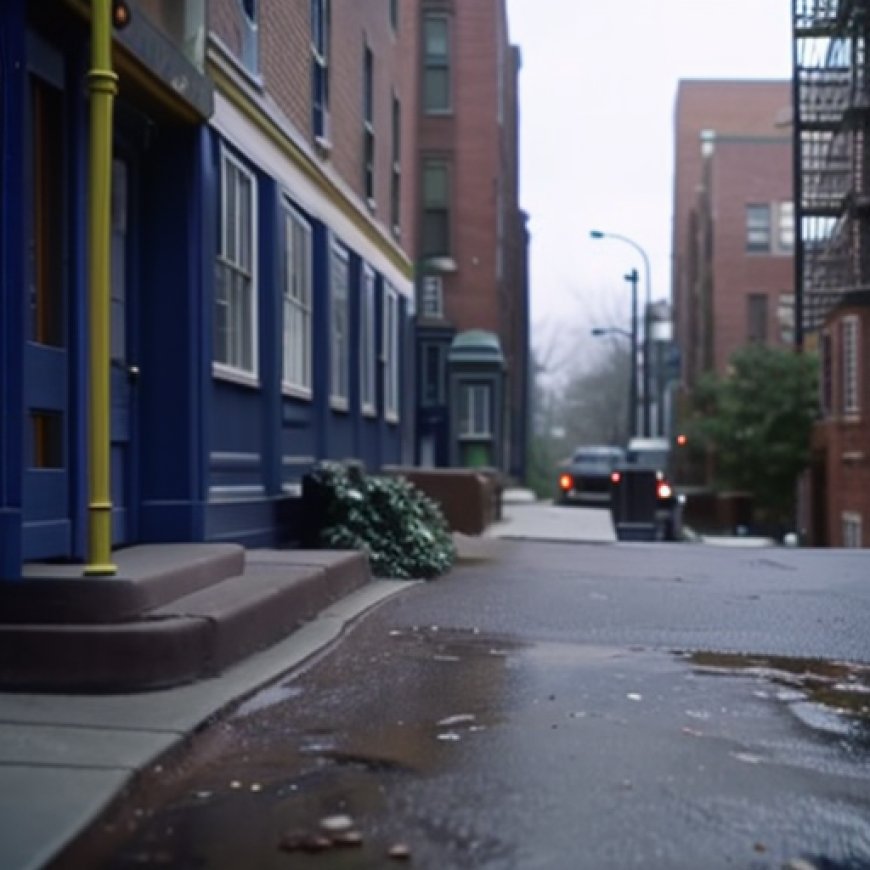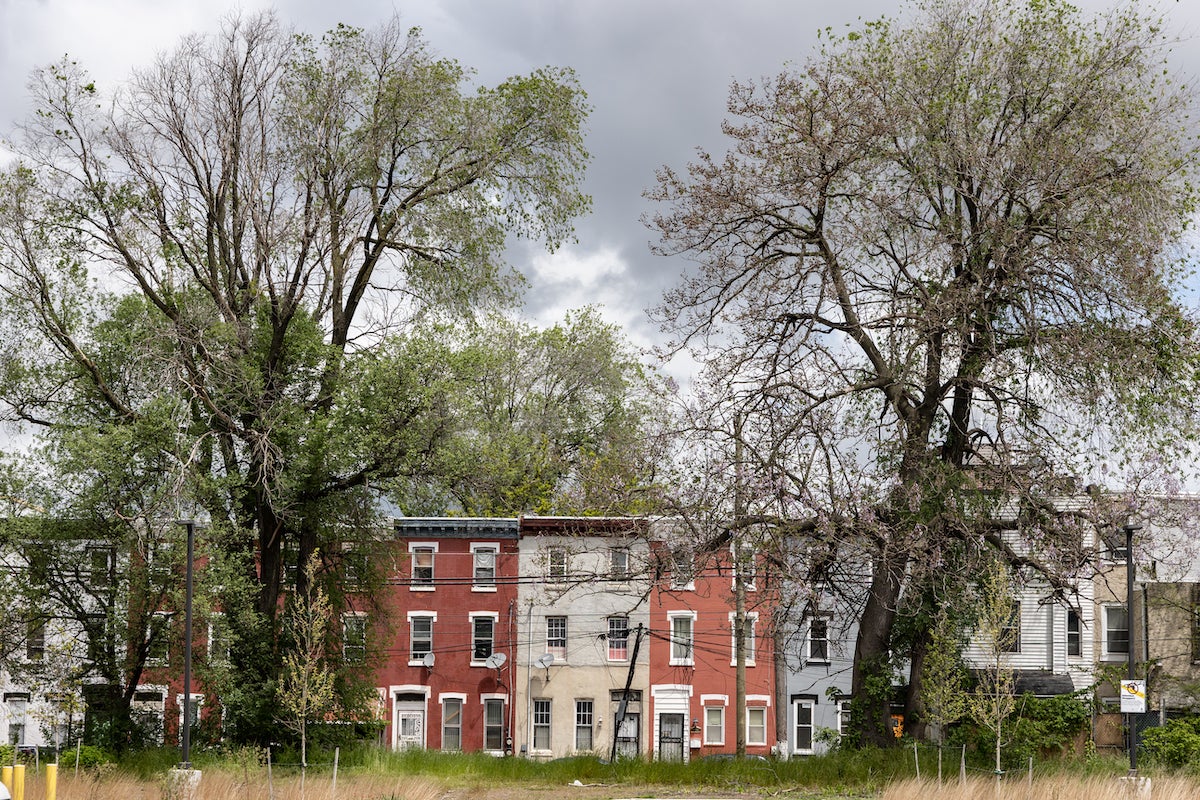New repairs program seeks to stabilize Philly’s stock of affordable housing
‘A win-win’: New repairs program seeks to stabilize Philly’s stock of affordable housing WHYY


Rental Improvement Fund Program in Philadelphia

Introduction
A new citywide program in Philadelphia aims to assist small landlords in making necessary repairs to their properties while keeping the units affordable for tenants. The program aligns with the Sustainable Development Goals (SDGs) by promoting sustainable cities and communities (SDG 11) and ensuring access to affordable and decent housing (SDG 1).
The Rental Improvement Fund
The Rental Improvement Fund offers two types of loans to eligible landlords. The first type is a 10-year forgivable loan of up to $24,999 per property. The second type is a 15-year 0% interest loan of up to $50,000 per unit. The program has a total budget of $9 million, with a maximum loan limit of $100,000 for a single landlord.
Repair Options
Landlords can utilize the funds to address various repair needs, including roofs, windows, doors, asbestos and mold remediation, lead remediation, and electrical and plumbing improvements. These repairs contribute to SDG 11 by ensuring safe, resilient, and sustainable housing for all.
Eligibility Criteria
- Own no more than five rental properties and no more than 15 rental units
- Have a valid rental license and property insurance
- Be current or in a payment agreement for city taxes
- Have a tax compliance certificate
- Exception: Loan can be used to address repair issues preventing the landlord from securing a rental license and/or insurance
Rent Increase Limitations
Under the program, landlords are not allowed to raise monthly rents by more than 3% each year, unless they are leasing to a tenant with a Housing Choice Voucher. This provision ensures that affordable housing remains accessible to low-income individuals and families, supporting SDG 1.
Success Story
Steven Hawkins, a GED instructor with the nonprofit Beyond Literacy, participated in the pilot phase of the program. He secured a loan of approximately $16,000 to make necessary repairs to his rental property in West Philadelphia. The loan enabled him to fix the roof and make improvements to the first-floor apartment. The upgrades include new windows, shower tiles, countertops, and water-efficient toilets. This success story demonstrates how the program benefits both landlords and tenants, contributing to SDG 11.
Funding and Oversight
The Rental Improvement Fund Program is funded by the Neighborhood Preservation Initiative, a $400 million program launched by the city in 2021, and the Whole-Home Repairs Program, a $125 million statewide effort designed to support homeowners and landlords affected by the COVID-19 pandemic. These initiatives align with SDG 11 by promoting sustainable housing and community development.
Conclusion
The Rental Improvement Fund Program in Philadelphia plays a crucial role in addressing the repair needs of small landlords while ensuring the affordability of rental units for tenants. By supporting sustainable cities and communities (SDG 11) and access to affordable housing (SDG 1), the program contributes to the achievement of the Sustainable Development Goals.
Share this
Support Our Journalism
WHYY is your source for fact-based, in-depth journalism and information. As a nonprofit organization, we rely on financial support from readers like you. Please consider giving today.
SDGs, Targets, and Indicators
1. Which SDGs are addressed or connected to the issues highlighted in the article?
- SDG 1: No Poverty
- SDG 11: Sustainable Cities and Communities
The article discusses a citywide program in Philadelphia that aims to help small landlords make repairs to their properties while keeping the units affordable for tenants. This addresses the issue of poverty (SDG 1) by providing support to landlords who may be struggling financially. It also connects to the goal of creating sustainable cities and communities (SDG 11) by ensuring that affordable housing is maintained and improved.
2. What specific targets under those SDGs can be identified based on the article’s content?
- Target 1.4: By 2030, ensure that all men and women, in particular the poor and the vulnerable, have equal rights to economic resources, as well as access to basic services, ownership, and control over land and other forms of property.
- Target 11.1: By 2030, ensure access for all to adequate, safe, and affordable housing and basic services and upgrade slums.
The program mentioned in the article aims to provide financial support to small landlords, particularly those who may be struggling financially. This aligns with Target 1.4 of SDG 1, which focuses on ensuring equal rights to economic resources for all individuals, including the poor and vulnerable. Additionally, the program aims to improve the quality of rental units and make them more affordable, which relates to Target 11.1 of SDG 11.
3. Are there any indicators mentioned or implied in the article that can be used to measure progress towards the identified targets?
Yes, the article mentions several indicators that can be used to measure progress towards the identified targets:
- Number of small landlords receiving loans through the program: This indicator can measure the reach and impact of the program in providing financial support to small landlords.
- Number of repairs and improvements made to rental properties: This indicator can measure the extent to which the program is helping landlords make necessary repairs and upgrades to their properties.
- Percentage of rental units with affordable rents: This indicator can measure the success of the program in keeping rental units affordable for tenants.
The article mentions that the program is expected to help hundreds of small landlords and provides information on the types of repairs and improvements that can be made using the loans. These indicators can be used to assess the progress made towards the targets of SDG 1 and SDG 11.
4. Table: SDGs, Targets, and Indicators
| SDGs | Targets | Indicators |
|---|---|---|
| SDG 1: No Poverty | Target 1.4: By 2030, ensure that all men and women, in particular the poor and the vulnerable, have equal rights to economic resources, as well as access to basic services, ownership, and control over land and other forms of property. |
|
| SDG 11: Sustainable Cities and Communities | Target 11.1: By 2030, ensure access for all to adequate, safe, and affordable housing and basic services and upgrade slums. |
|
Behold! This splendid article springs forth from the wellspring of knowledge, shaped by a wondrous proprietary AI technology that delved into a vast ocean of data, illuminating the path towards the Sustainable Development Goals. Remember that all rights are reserved by SDG Investors LLC, empowering us to champion progress together.
Source: whyy.org

Join us, as fellow seekers of change, on a transformative journey at https://sdgtalks.ai/welcome, where you can become a member and actively contribute to shaping a brighter future.







